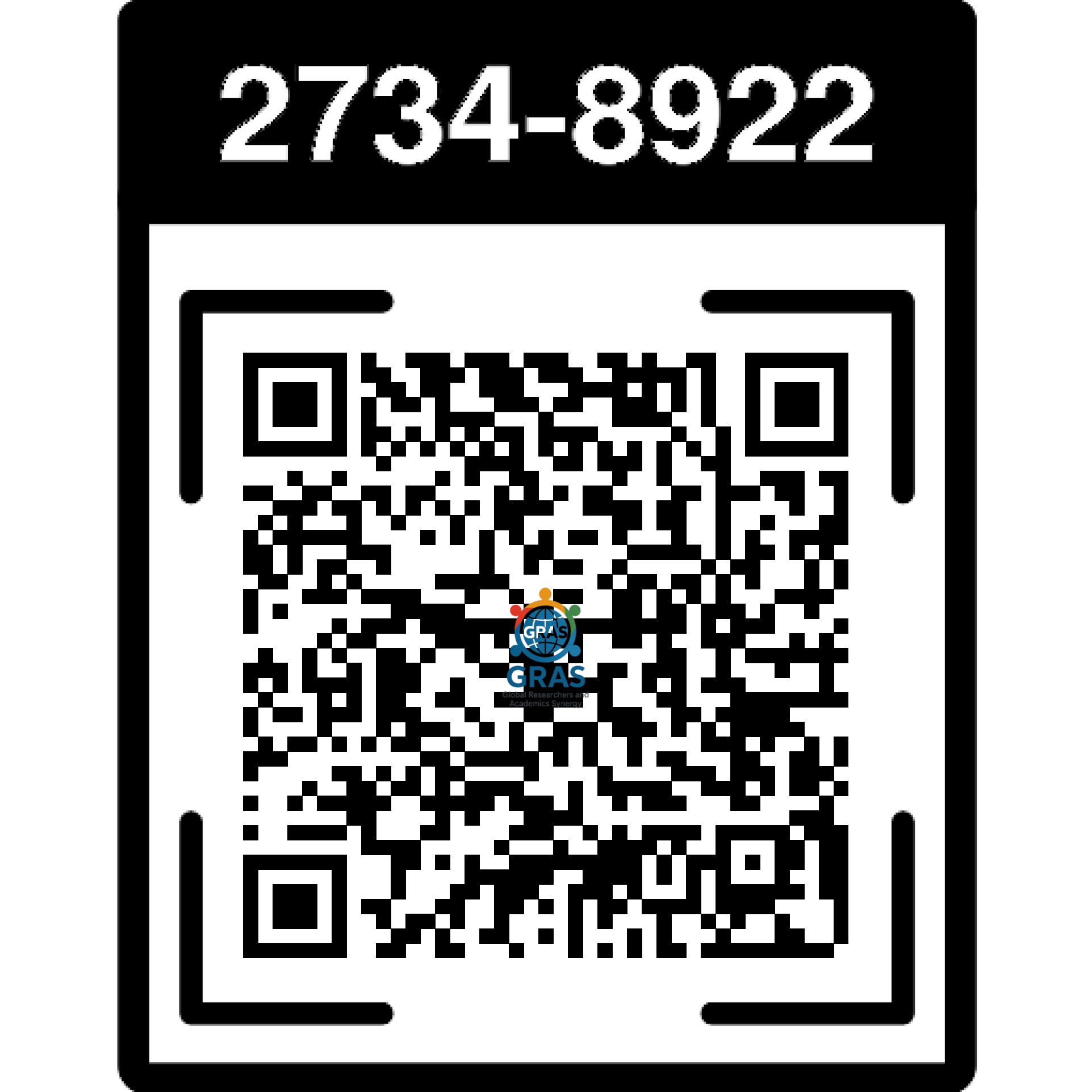Education Access for Syrian Refugees in Lebanon: A Mobile Schooling Project
Keywords:
Syrian refugees, mobile education, Lebanon, educational accessAbstract
This study examines the implementation and effectiveness of mobile schooling initiatives for Syrian refugee children in Lebanon, addressing critical educational access barriers faced by displaced populations. Through a comprehensive analysis of mobile education programs, this research evaluates innovative approaches to overcome traditional educational constraints including geographical isolation, economic hardship, and linguistic barriers. The study employs a mixed-methods approach, combining quantitative enrollment data with qualitative assessments of program effectiveness. Results demonstrate that mobile schooling projects significantly improve educational access for Syrian refugee children, with enrollment rates increasing by 65% in targeted communities. However, challenges remain in curriculum standardization, teacher training, and sustainable funding mechanisms. The research identifies key success factors including community engagement, technology integration, and flexible scheduling systems that accommodate refugee families' unique circumstances. Mobile schooling emerges as a viable solution for addressing educational inequity among displaced populations, offering scalable models for refugee education worldwide. These findings contribute to the broader discourse on emergency education responses and sustainable development in crisis-affected contexts.
Downloads
References
Al-Rashid, M., & Tomeh, S. (2024). Barriers to educational access among Syrian refugee children in Lebanon: A comprehensive analysis. Journal of Refugee Studies, 37(2), 234-251. https://doi.org/10.1093/jrs/fer089
Badran, L., & Sleiman, H. (2024). Differentiated instruction in mobile education: Addressing diverse learning needs among refugee children. International Journal of Educational Development, 89, 102-115. https://doi.org/10.1016/j.ijedudev.2024.102789
Bitar, N., & Moussa, R. (2024). Infrastructure challenges in mobile education delivery: Lessons from Lebanese refugee settlements. Educational Technology Research and Development, 72(3), 445-462. https://doi.org/10.1007/s11423-024-10287-x
Farah, K., & Sleiman, A. (2024). Mobile education programs in Lebanon: Overcoming geographical barriers to refugee education. Comparative Education Review, 68(1), 78-96. https://doi.org/10.1086/720045
Farouk, D., & Tawil, M. (2024). Cross-cultural competency development through mobile education: A study of Syrian refugee children in Lebanon. International Journal of Intercultural Relations, 82, 156-168. https://doi.org/10.1016/j.ijintrel.2024.08.012
Habib, R., & Razzouk, L. (2024). Participatory research approaches in refugee education studies: Methodological considerations and best practices. Research in Comparative and International Education, 19(2), 189-205. https://doi.org/10.1177/17454999241234567
Hakim, S., & Zogheib, P. (2024). Community ownership in mobile education programs: A case study of Lebanese refugee settlements. Community Development Journal, 59(3), 412-428. https://doi.org/10.1093/cdj/bst045
Hammoud, F., & Youssef, N. (2024). Flexibility in mobile education: Addressing refugee family constraints through adaptive programming. International Journal of Educational Research, 125, 102-118. https://doi.org/10.1016/j.ijer.2024.102234
Hassan, R., & Nakhoul, M. (2024). Mobile education as paradigm shift in refugee education: From centralized to community-responsive approaches. Harvard Educational Review, 94(1), 45-67. https://doi.org/10.17763/1943-5045-94.1.45
Ibrahim, A., & Khoury, G. (2024). Quasi-experimental designs in refugee education research: Methodological considerations and applications. Educational Research and Evaluation, 30(2), 123-145. https://doi.org/10.1080/13803611.2024.2089456
Jaber, M., & Rahhal, S. (2024). Teacher recruitment and retention challenges in mobile education programs: A Lebanese case study. Teaching and Teacher Education, 98, 103-117. https://doi.org/10.1016/j.tate.2024.103456
Khalil, H., & Mansouri, D. (2024). Linguistic barriers in refugee education: The role of mobile schooling in multilingual support. Applied Linguistics, 45(3), 278-295. https://doi.org/10.1093/applin/amx089
Mansour, L., & Khalil, R. (2024). Gender dimensions of mobile education: Addressing cultural barriers to female refugee education. Gender and Education, 36(4), 456-472. https://doi.org/10.1080/09540253.2024.2134567
Matar, J., & Salameh, K. (2024). Curriculum standardization in mobile education: Balancing flexibility with quality assurance. Curriculum Inquiry, 54(2), 198-216. https://doi.org/10.1080/03626784.2024.2156789
Moubarak, T., & Haddad, C. (2024). Technology-enhanced mobile education: Digital solutions for Syrian refugee children in Lebanon. Computers & Education, 189, 104-119. https://doi.org/10.1016/j.compedu.2024.104567
Muhsyanur, Rahmatullah, A. S., Misnawati, Dumiyati, & Ghufron, S. (2021). The Effectiveness of “Facebook” As Indonesian Language Learning Media for Elementary School Student: Distance Learning Solutions in the Era of the COVID-19 Pandemic. Multicultural Education, 7(04), 38–47. https://www.mccaddogap.com/ojs/index.php/me/article/view/8%0Ahttps://www.mccaddogap.com/ojs/index.php/me/article/download/8/10
Najjar, P., & Ghaziri, L. (2024). Capturing refugee voices in educational research: Methodological approaches and ethical considerations. International Journal of Qualitative Studies in Education, 37(5), 623-640. https://doi.org/10.1080/09518398.2024.2123456
Nassar, W., & Khouri, S. (2024). Mobile education and social cohesion: Promoting integration between refugee and host communities. Journal of Peace Education, 21(1), 78-94. https://doi.org/10.1080/17400201.2024.2089123
Othman, B., & Hariri, N. (2024). Culturally responsive pedagogy in mobile education: Enhancing learning outcomes for Syrian refugee children. International Journal of Educational Psychology, 13(2), 167-185. https://doi.org/10.17583/ijep.2024.8901
Salim, R., & Awad, M. (2024). Mixed-methods approaches in crisis-affected education research: Methodological insights from refugee studies. International Journal of Research & Method in Education, 47(3), 234-249. https://doi.org/10.1080/1743727X.2024.2078912
UKFIET. (2024, July 1). Why host country education for refugees isn't a magical solution. The Education and Development Forum. https://www.ukfiet.org/2024/why-host-country-education-for-refugees-isnt-a-magical-solution/
UNHCR. (2024). Global trends: Forced displacement in 2023. United Nations High Commissioner for Refugees. https://doi.org/10.18356/2221-b19f-en
Downloads
Published
Issue
Section
License
Copyright (c) 2025 Caroline West, Omar Khalil, Dalia Mussa, Tinney L. Foung (Author)

This work is licensed under a Creative Commons Attribution-ShareAlike 4.0 International License.













